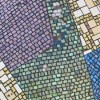Amy Nisselle
This user hasn't shared any biographical information
Posts by Amy Nisselle

Can a moisturizer treat cancer?
Aug 17th
How often do you moisturize your skin? Every day? Once a month? Well researchers at Northwestern University in Chicago have given a moisturizer the ability to perform RNA interference and regulate genes.
Topical treatments are common for skin cancers like melanoma, as they can be applied directly to the affected cells. But our skin is very effective at blocking toxins getting into our bodies so the challenge was how to cross that barrier.
Again, enter the realm of nanotechnology, a topic I post about regularly.
This time, the scientists paired gold nanoparticles with small interfering RNA (siRNA) molecules to form a siRNA “sphere.” These miniscule More >
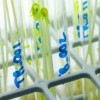
Online Graduate Education in Biotechnology
Jul 6th
I recently blogged about harnessing the power of bioinformatics for cancer research. An interested reader, Linda Zabriske, commented that the blogosphere (and government organizations such as the Bureau of Labor Statistics) has been gradually filling with talk about cancer research and its role in our future. Linda’s tool, the Online Graduate Programs, collates some of these articles and ideas and she’s co-written this month’s post with me, reflecting on Online Graduate Education in Biotechnology.
In past decades, the field of biological science and engineering were considered separate and distinct. Biology dealt with the complexities and wonders of humans, animals and plants, More >

Future Nobel Prize-winning cancer researchers?
Mar 19th
What did you do for your science fair this year? Or last year? Or 20 years ago?
Recently three high school students took out top honors in science fairs for their projects involving cancer research:
- Angela Zhang from California developed nanotechnology to destroy cancer stem cells and win the 2011 Siemens Competition in Math, Science & Technology;
- Shree Bose from Texas discovered a protein that could help prevent resistance to chemotherapy to take out first prize in the first International Google Science Fair; and
- Michigan native Nithin Tumma won the 2012 Intel Science Talent Search with his investigation of molecular pathways to compare breast cancer More >
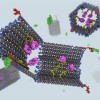
What do you get when you cross an immunologist, a nanotechnologist, and a geneticist? A DNA nano-robot!
Feb 17th
Welcome to the world of nanobiotechnology and translational research…
In a brilliant example of multidisciplinary research, Harvard Medical School’s Shawn Douglas, Ido Bachelet, and George Church combined forces to build nanostructures that would mimic the body’s immune system to recognize cancer cells and trick them into self-destructing. Their research is published today in Science but the discovery didn’t just happen overnight. It’s the culmination of several key discoveries going back several years, by researchers around the globe.
In 2006, Paul Rothemund at the California Institute of Technology, discovered “DNA origami,” where the Watson-Crick base-pairing rules are exploited to create molecules from viral DNA More >

Mapping the migratory patterns of……brain cancer cells?
Jan 18th
We’ve all watched fascinating David Attenborough documentaries about the migratory patterns of birds, sub-Saharan animals and butterflies, but cancer cells? Yes, cancer cells migrate too. More specifically, brain cancer cells.
Researchers have known for a while that not only are glioblastoma multiforme cells highly resistant to chemotherapy, but they can also deftly migrate away from sites of radiation or surgery, setting up camp and regrowing in other parts of the brain. This means that brain cancer is notoriously difficult to treat and the prognosis is almost always grim.
Last year the New York Times described Hanahan and Weinberg’s Hallmarks of Cancer as follows:
“Through a More >
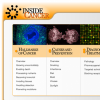
Evaluating our DNALC Inside Cancer website
Dec 22nd
Every multimedia developer is from time‐to‐time faced with the difficult question from a board member, critic or funding body: “This program is all very nice, but can you prove it actually helps students to learn?”
This year, we found the answer.
As part of my job as a producer at the DNA Learning Center, I evaluate our suite of resources, including websites, teacher training workshops and apps. We recently completed the evaluation of our cancer biology website, Inside Cancer, which included conducting experiments in 2010–11 to see if the site improves student learning in genetics and cancer biology.
There is increasing pressure on More >
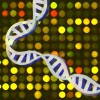
Harnessing the power of bioinformatics in cancer research
Nov 22nd
One of the biggest challenges facing cancer researchers is that the disease varies so much from person to person. Even the same type of cancer – lung, brain, breast, colon, and so on – can be subtly different. This means that a therapy that works well in one patient may have no effect in another.
So researchers in the UK brought in the big guns – bioinformatics.
Cancer Research UK has set up seven British centers to start collecting 9,000 tumor samples from a wide range of cancer patients to create a DNA database. Researchers will extract DNA from these tumors and More >
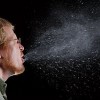
The Upside of Allergies
Oct 19th
Are you one of those unfortunate souls who suffers from allergies? Do you shudder at the thought of spring time, with all its budding flowers, new growth and pollen flying through the air? Can’t visit Aunty Annie’s house because of the cat dander? Have to ask the ingredients of every cookie for traces of nuts, eggs, or wheat?
Well you may actually be one of the lucky ones! Your immune system’s sensitivity may be protecting you from contracting brain cancer.
Researchers at the University of Illinois at Chicago asked over 1,000 hospital patients about their allergy histories. Astonishingly, patients who had high-grade More >
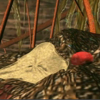
Brain tumors snack on cholesterol
Sep 19th
Researchers at the University of California Los Angeles and Ohio State University Comprehensive Cancer Center are investigating a new treatment for glioblastoma, the deadliest form of brain cancer. Their paper, out this week in Cancer Discovery, shows how blocking a mechanism involved in cell metabolism and triggered by a cancer gene can reduce brain tumors.
Glioblastoma affects about 18,500 Americans each year, with less than More >

